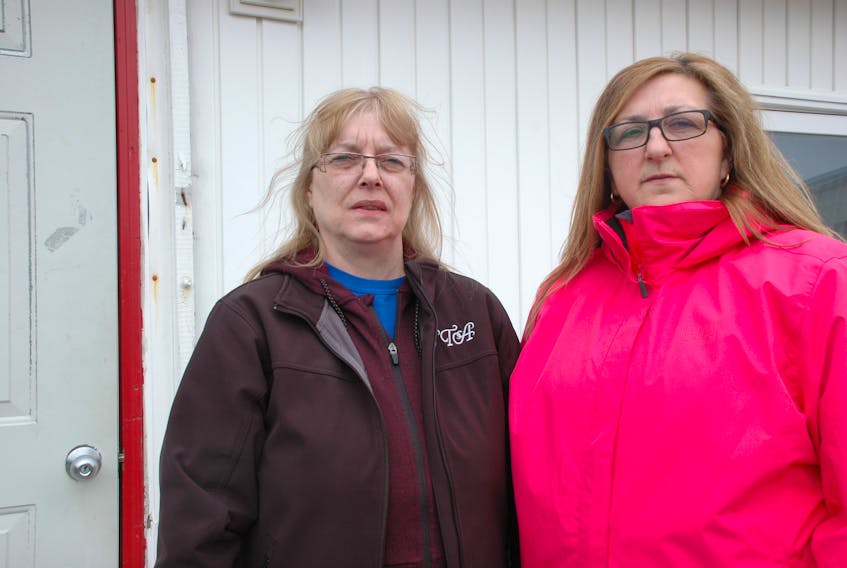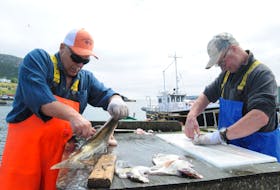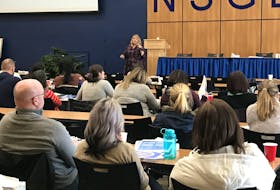Workers at the former shrimp plant in Black Duck Cove on the Great Northern Peninsula are ‘devastated’ by the news Gulf Shrimp Limited won’t be rebuilding, but they aren’t giving up.
Eva Applin, a union representative for the workers, said workers won’t let this happen without a fight.

She said if the company plans to move its product through Black Duck Cove to get to its other plants, it will find it difficult.
“They may try to land, their trucks might come to pick it up, but there will be major interruptions,” she said. “If he wants war, we’ll give him war. The fight has only just started.”
Michelle Dredge, another union representative for the workers, told The Northern Pen they heard the news from the company on Feb. 5.
“It’s devastation here that they’re not going to come back with us,” she said. “They said they didn’t have enough work for 65 to 70 workers but have enough for 100 in St. Anthony.”
The Black Duck Cove plant burned down in May, 2019.
Applin said workers want the company to use the insurance money to rebuild the plant, which would help them as they look for other processors.
Concerns were raised about the future of the plant when it was announced in January that Quin-Sea Fisheries would enter a partnership with Clearwater to operate the St. Anthony Seafoods plant.
Dredge said workers feel like they were strung along while the company worked out another deal in St. Anthony.
Gabe Gregory, an independent director with Gulf Shrimp Ltd., said workers raised this concern and the two have nothing to do with one another.
“I understand one of the partners is involved with the deal for St. Anthony Seafoods but whether or not that happened there wouldn’t be a case for us rebuilding in Black Duck Cove.”
Applin said she doesn’t believe the two are not connected.
Gregory said the company looked at several options beyond shrimp for the plant, but the case just wasn’t there.
“We looked at other species, that was considered and that’s reflected in the company’s decision,” he said. “At this time we don’t see a resource base there to support rebuilding at Black Duck Cove.”
He said declines in shrimp quotas made business margins also decline over the years. After the fire, they couldn’t justify the cost to rebuild.
Applin disagrees. She said much of the shrimp from the area is processed in other parts of the province.
“Of course you’re going to deem an area insufficient if you don’t put the product there,” she said. “It’s not because we don’t have the product, we have it coming on our doorsteps.”
Workers recognize shrimp quotas are declining, Dredge said, but they think a multi-species approach has potential.
“We have the resources here, we have lobster, cod, halibut, it all comes to our wharf,” she said. “We would like to have the shrimp plant back but there’s plenty of other species here.”

Applin said the industry is moving back to multi-species processing, which was more common when she started working in plants, so she agrees there is potential.
The company told workers if they could get another viable license for the area, they would consider building another plant. Gregory said they don’t see that happening in the short term, but it would be considered.
“We’re not closing the door on coming back, but in the meantime, we have to be frank with people,” he said. “We don’t see any opportunity here in the short term for a viable, sustainable plant and business to employ people.”
Applin said if they were to find another opportunity they would probably look to deal with another processor.
“They took their money and run, they aren’t in it for the people,” she said. “They’ve done the community and the workers wrong here.”
Gregory said while the company does still own the land they wouldn’t stand in the way of another operation.
The workers were to meet on Feb. 9 to figure out their next step, Dredge said.
They weren’t really surprised by the news, she said, but they are disappointed.
Some former workers went to work at other plants the company operates, such as Old Perlican, Dredge said, and may do so again.
Many are unsure of what they will do.
Gregory said the company understands this decision impacts about 70 people and is offering seasonal work at other operations throughout the province.









